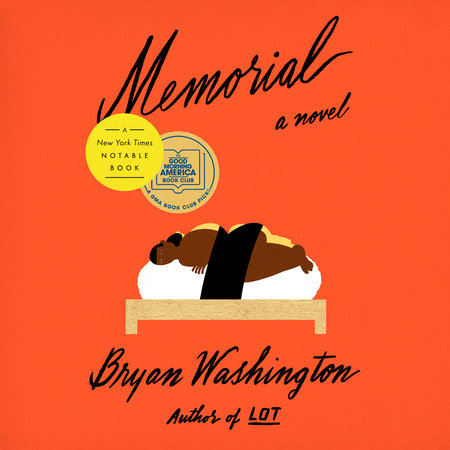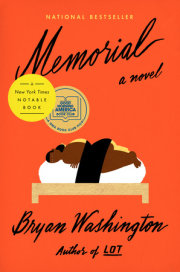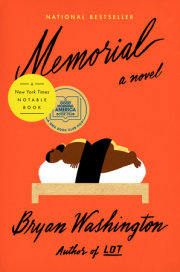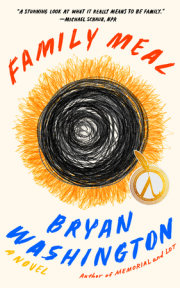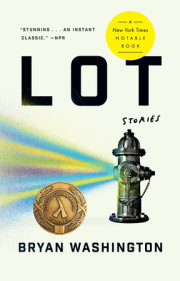1.
Mike’s taking off for Osaka, but his mother’s flying into Houston.
Just for a few weeks, he says.
Or maybe a couple of months, he says. But I need to go.
The first thing I think is: fuck.
The second’s that we don’t have the money for this.
Then, it occurs to me that we don’t have any savings at all. But Mike’s always been good about finances, always cool about separating his checks. It’s something I’d always taken for granted about him.
Now, he’s saying that he wants to find his father. The man’s gotten sick. Mike wants to catch him before he goes. And I’m on the sofa, half-listening, half charging my phone.
You haven’t seen your mom in years, I say. She’s coming for you. I’ve never met her.
I say, You don’t even fucking like your dad.
True, says Mike. But I already bought the ticket.
And Ma will be here when I’m back, says Mike. You’re great company. She’ll live.
He’s cracking eggs by the stove, slipping yolks into a pair of pans. After they’ve settled, he salts them, drizzling mayonnaise with a few sprigs of oregano. Mike used to have this thing about sriracha, he’d pull a hernia whenever I reached for it, but now he squeezes a faded bottle over my omelette, rubbing it in with the spatula.
I don’t ask where he’ll stay in Japan. I don’t ask who he’s staying with. I don’t ask where his mother will sleep here, in our one bedroom apartment, or exactly what that arrangement will look like. The thing about a moving train is that, sometimes, you can catch it. Some of the kids I work with, that’s how their families make it into this country. If you fall, you’re dead. If you’re too slow, you’re dead. But if you get a running start, it’s never entirely gone.
So I don’t flip the coffee table. Or one of our chairs. I don’t key his car or ram it straight through the living room. After the black eye, we stopped putting our hands on each other -- we’d both figured, silently, it was the least we could do.
Today, what I do is smile.
I thank Mike for letting me know.
I ask him when he’s leaving, and I know that’s my mistake. I’m already reaching to toss my charger before he says it, tomorrow.
*
We’ve been fine. Thank you for asking.
*
Our relationship is, what, four years old? But that depends on how you count. We haven’t been to a party in months, and when we did go to parties, at first, no one knew we were fucking. Mike just stood to the side while whatever white girl talked her way into my space, then he’d reach up over my shoulder to slip a finger into my beer.
Or he’d sneeze, stretch, and wipe his nose with my shirt sleeve.
Or he’d fondle my wallet, slowly, patting it back into place.
Once, at a dinner, right under the table, he held court with a hand in my lap. Running his thumb over the crotch. Every now and again, someone would look and you could tell when they finally saw. They’d straightened their backs. Smile a little too wide. Then Mike would ask what was wrong, and they’d promise it was nothing, and he’d go right back to cheesing, never once nodding my way.
We knew how we looked. And how we didn’t look. But one night, a few weeks back, at a bar crawl for Mike’s job, all it took was a glance at us. He works at a coffee shop in Montrose. It’s this fusion thing where they butcher rice bowls and eggrolls -- although, really, it’s Mexican food, since unless your name is Mike that’s who’s cooking.
They’d been open for a year. This was their anniversary celebration. Mike volunteered us to help for an hour, flipping tortillas on a burner by the DJ.
I felt miserable. Mike felt miserable. Everyone who passed us wore this look that said, Mm. They touched our shoulders. Asked how long we’d been together. Wondered where we’d met, how we’d managed during Harvey, and the music was too fucking loud so Mike and I just sort of shrugged.
*
I don’t say shit on our way to the airport to pick up his mother, and I don’t say shit when Mike parks the car. IAH sits outside of Houston’s beltways, but there’s always steady traffic lining the highway. When Mike pulls up to Arrivals, he takes out the keys, and a line shimmers behind us, this tiny constellation of travelers.
Mike’s got this mustache now. It wavers over his face. He usually clips all of that off, and now I think he looks like a caricature of himself. We sit beside the terminal, and we can’t have the most fucked up situation here, but still. You have to wonder.
I wonder.
I wonder if he wonders.
We haven’t been good at apologizing lately. Now would be a nice time.
The airport sees about 111,500 visitors a day, and here we are, two of its most ridiculous.
Hey, says Mike.
He sighs. Hands me the keys. Says he’ll be right back with his mother.
If you leave us stranded in the parking lot, says Mike, we’ll probably find you.
*
It took all of two dates for him to bring up Race. We’d gone to an Irish bar tucked behind Hyde Park. Everyone else on the patio was white. I’d gotten a little drunk, and when I told Mike he was slightly shorter than optimal, he clicked his tongue, like, what took you so long.
What if I told you you’re too polite, said Mike.
Fine, I said.
Or that you’re so well-spoken.
I get it. Sorry.
Don’t be sorry, said Mike, and then he boxed my shoulder.
It was the first time we’d touched that night. The bartender glanced our way, blinking.
I just hope you see me as a fully realized human being, said Mike. Beyond the obvious sex appeal.
Shut up, I said.
Seriously, said Mike, no bullshit.
Me Mifune, he said, you Yasuke.
Stop it, I said.
Or maybe we’re just fucking Bonnie and Clyde, he said.
*
Three different cops peek in the car while Mike’s in baggage claim. I smile at the first two. I frown at the third. The last guy taps the window, like, What the fuck are you waiting for, and when I point towards the airport’s entrance all he does is frown.
Then I spot them on their way out. The first thing I think is that they look like family. Mike’s mother is hunched, just a little bit, and he’s rolling her suitcase behind her. For a while, they saw each other annually she’d fly down just to visit, but the past few years have been rocky. The visits stopped once I moved in with Mike.
The least I can do is pop the trunk. I’d like to be the guy who doesn’t, but I’m not.
Mike helps his mother adjust the backseat as she gets in, and she doesn’t even look at me. Her hair’s in a bun. She’s got on this bright blue windbreaker, with a sickness mask, and the faintest trace of make-up.
Ma, says Mike, you hungry?
She mumbles something in Japanese. Shrugs.
Ma, says Mike.
He glances at me. Asks again. Then he switches over, too.
She says something, and then he says something, and then another guy directing traffic walks up to my window. He’s Latino, husky in his vest. Shaved head like he’s in the Army. He mouths at us through the glass, and I let the window down, and he asks if anything’s wrong.
I tell him we’re moving.
Then move, says this man.
The next words leave my mouth before I can taste them. It’s a little like gravity. I say, Okay, motherfucker, we’re gone.
And the Latino guy just frowns at me. Before he says anything else, there’s a bout of honking behind us. He looks at me again, and then he wanders away, scratching at his chest, wincing back at our car.
When I roll the window up, Mike’s staring. His mother is, too. She says something, shaking her head, and I pull the car into traffic.
I turn on the radio, and it’s Meek Mill.
I flip the channel, and it’s Migos.
I turn the damn thing off. Eventually we’re on the highway.
All of a sudden, we’re just one more soap opera among way too many, but that’s when Mike’s mother laughs, shaking her head.
She says something in Japanese.
Mike thumps the glove compartment, says, Ma.
*
My parents pretend I’m not gay. It’s easier for them than it sounds. My father lives in Katy, just west of Houston, and my mother stayed in Bellaire, even after she remarried. Before that, we took most of our family dinners downtown. My father was a meteorologist. It was a status thing. He’d pick my sister and my mother and me up from the house, ferrying us up I-45 just to eat with his co-workers, and he always ordered our table the largest dish on the menu—basted pigs spilling from platters, pounds of steamed crab sizzling over bok choi—and he called this Work, because he was always Working.
A question he used to ask us was, How many niggas do you see out here telling the weather?
My mother never debated him or cussed him out or anything like that. She’d repeat exactly what he said. Inflect his voice. That was her thing. She’d make him sound important, like some kind of boss, but my father’s a little man, and her tactics did exactly what you’d think they might do.
Big job today, she’d say, in the car, stuck on the 10.
This forecast’s impressive, she’d say, moments after my father shattered a wine glass on the kitchen wall.
I swear it’s the last one, she’d say, looking him dead in the eyes, as he floundered, drunk, grabbing at her knees, swearing that he’d never touch another single beer.
Eventually, she left. Lydia went with our mother, switching high schools. I stayed in the suburbs, at my old junior high, and my father kept drinking. He lived off his savings once he got fired from the station for being wasted on-air. Sometimes, he’d sub high school science classes, but he mostly stayed on the sofa, booing at the hourly prognoses from KHOU.
Occasionally, in blips of sobriety, I’d come home to him grading papers. Some kid had called precipitation anticipation. Another kid, instead of defining cumulus clouds, drew little fluffs all over the page. One time my father laid three tests on an already too cluttered end table, all with identical handwriting, and only the names changed.
He waved them at me, asked why everything had to be so fucking hard.
*
A few months in, Mike said we could be whatever we wanted to be. Whatever that looked like.
I’m so easy, he said.
I’m not, I told him.
You will be, he said. Just give me a little time.
*
It’s past midnight when we pull onto our block. Most of the lights are out. Some kids are huddled by the curb, smoking pot, fucking around with firecrackers.
When a pop explodes behind us, the kids take off. That’s their latest thing. Mike’s mother doesn’t even flinch.
Ma, says Mike, this is home.
We live in the Third Ward, a historically black part of Houston. Our apartment’s entirely too large. It doesn’t make any sense. At one point, the neighborhood had money, but then crack happened and the money took off, and occasionally you’ll hear gunshots or fistfights or motherfuckers driving way too fast. But the block has recently been invaded by fraternities from the college up the block. And a scattering of professor types. With pockets of rich kids playing at poverty. The black folks who’ve lived here for decades let them do it, happy for the scientific fact that white kids keep the cops away.
Our immediate neighbors are Venezuelan. They’ve got like nine kids. Our other neighbors are these black grandparents who’ve lived on the property forever. Every few weeks, Mike cooks for both families, sopa de pescado and yams and macaroni and rice. He’s never made a big deal about it, he just wakes up and does it, and after the first few times I asked Mike if that wasn’t patronizing.
But, after a little while, I noticed people let him linger on their porches. He’d poke at their kids, leaning all over the wood. Sometimes the black folks invited him inside, showed him pictures of their daughter’s daughters.
Copyright © 2020 by Bryan Washington. All rights reserved. No part of this excerpt may be reproduced or reprinted without permission in writing from the publisher.

